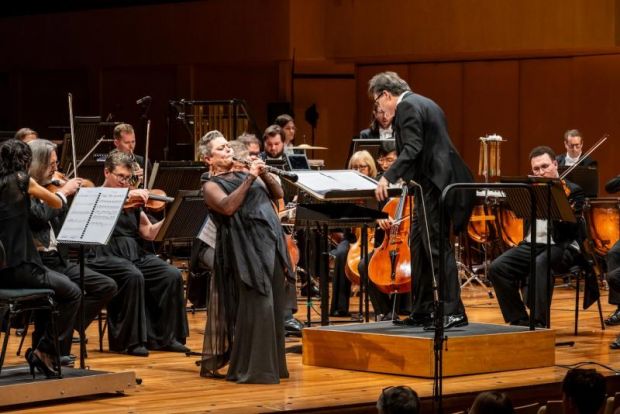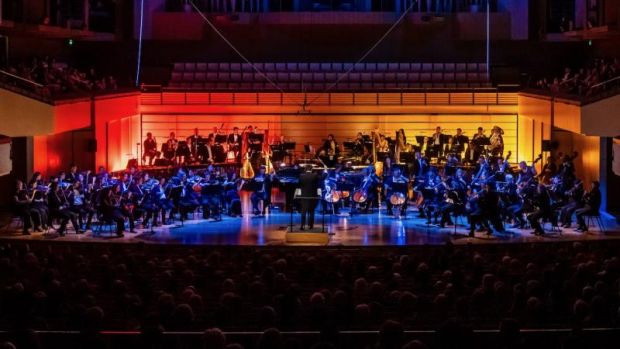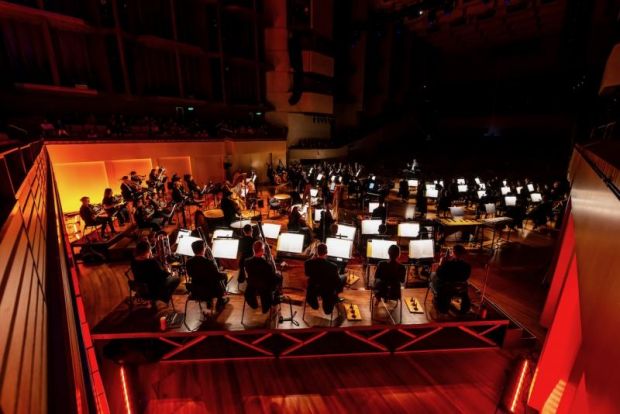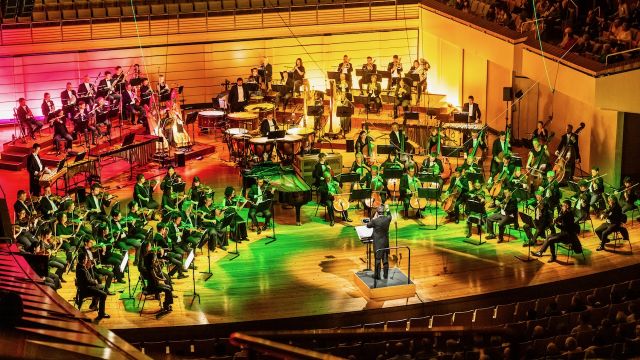Spirit of the Wild
An almost full-house, both upstairs and downstairs, greeted the QSO for this themed concert designed to connect the audience with the natural ecological world around us by including two contemporary works created by composers dedicated to the conservation of our planet and deeply concerned by the formidable destruction already caused by greedy, materialistic humans and their followers. So it was fitting to begin the concert with a more spiritual historic work, appropriately entitled 'The Depiction of Chaos' from Joseph Haydn's famous oratorio 'The Creation', with it's somewhat avant-garde use of harmony and ambiance, providing an 'overture' whilst painting an aural picture to assist in depicting the theme of the concert.
What followed next was Nigel Westlake's Oboe Concerto - Spirit of the Wild composed in collaboration with, for and inspired by the improvisations of performer Diana Doherty, a breath-taking (no pun intended) display of technique and artistry by one of Australia's leading oboe players. This is a very exciting piece full of colour and spectacle, with the accent on the percussive instruments of the orchestra in syncopated accompaniment, in particular the xylophone players, pianist and harp who all played with commendable precision and attack.

I love this work also because I was brought up in an era where experimentalism in all aspects of musical composition was in full flood; also because I spent many years playing the piano for contemporary dance classes (Graham, Cunningham and Limot), amongst others, where rhythm was a predominant requirement, bringing us more back-to-earth in contrast to the traditional 'escapist' classical style of defying gravity, 'reaching-out-into-the-heavens' as such. It was also inspiring to read about Ms Doherty's personal exploration of her instrument, incorporating the element of improvisation where one isn't glued to a mass of dots, a world I knew well and was indeed my bread and butter for many years. Understandably, and in true Brisbane style, a lengthy standing ovation and reprise followed this remarkable work and performance much to the delight of the performers and the composer himself who joined everyone on stage for the final bows.

After interval, resident conductor extraordinaire Umberto Clerici provided a verbal introduction to the next work 'Become Ocean', by American composer John Luther Adams, also a staunch environmental activist, including a mention of the email invite to the composer himself as well, but who was unable to attend due to ill-health, and the hilarious fact that Haydn doesn't have an email address!
In contrast to the previous work, and in true contemporary fashion, this is a work conceived from a mathematical formula (similar to Ravel, though certainly not in other aspects of compositional style, who was a stickler for form being renowned for saying he has almost completed his latest composition, just has to add the notes!) being a wash of surreal sound emanating from the composer's connection to the sea and its potential effect on the future of the planet. Using a set of repetitive rhythmic patterns again from the percussion section, the music eerily expresses the ocean in poetic motion, swaying back and forth, even palindromic, a world unto its own.

Being somewhat hypnotised by forty-two minutes of meditative constant reiteration from this composition, I came out of the concert hall more deflated than elated, bedtime not having being on the agenda, though I was impressed with its unique sonority and written message. Reducing its performance time by half and placing it before the previous work would have been my preference. Additionally, big doesn't necessarily mean better, scoring the work for such a large orchestra in all sections, even four harps, though the additional effective lighting plot enhanced the experience by pin-pointing the intended highs-and-lows throughout. The work also provided a golden opportunity for some of our university students to experience professional life.
I wonder if our highly trained and experienced orchestra, with such technical expertise, enjoyed or appreciated the therapeutic benefits of the last work per gratis?! Nonetheless, it was, on the whole, an engrossing night out, particularly for those who not only love music but also have a conscience and motivation to assist in preserving the beauty spots of our fragile planet.
Brian Adamson
Subscribe to our E-Newsletter, buy our latest print edition or find a Performing Arts book at Book Nook.

